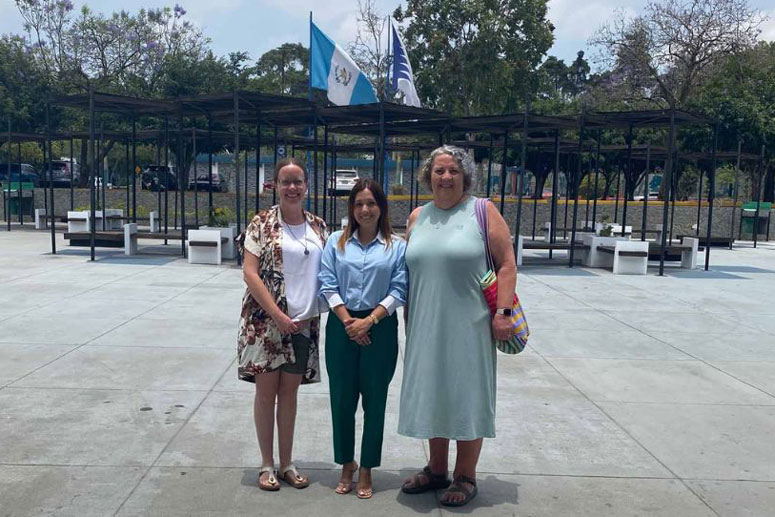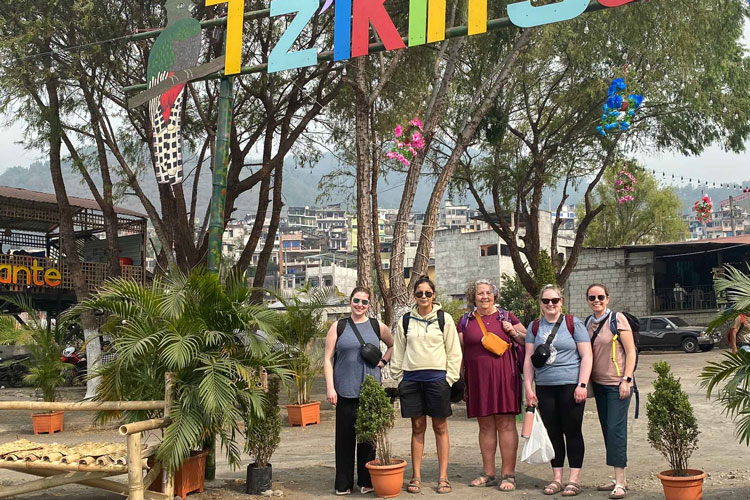
College of Education professor recognized for teaching excellence
Dr. Geraldine Balzer (BEd’87, PhD’07) has received a University of Saskatchewan (USask) Provost's College Teaching Award for 2023-24.
By CONNOR JAY“I have always felt that teaching is a very important part of my role at the university,” said Balzer. “Since I came into this job having previously been a classroom teacher for multiple years, I also feel as if I have worked on my skills and that this was a recognition of that work that I have done to be a good teacher.”
When reflecting on her academic journey, three important mentors came to Balzer’s mind. The first was her high school algebra and chemistry teacher who taught her the importance of relationality. This has become a focal point in her teaching methods.
“He was somebody who was involved in the school,” recalled Balzer. “He was a good teacher because he cared about his students. I have no idea how well he knew algebra and chemistry, but l liked algebra and chemistry because of what he brought to the classroom.”
Once Balzer began pursuing graduate studies, her master’s degree supervisor, Dr. Gordon Slethaug (PhD) infused excitement and engagement into teaching literature and inspired her to take similar approaches.
“I had never been interested in 19th century American literature until I took his class,” shared Balzer. “It was the joy that he brought to the subject matter, his obvious interest in it and the way he engaged relationally with graduate students to pull and validate our ideas. I saw him both as an excellent teacher and an excellent researcher because he was remaining current.”
Balzer gives credit to Dr. Angela Ward (PhD) for helping start her research career in English Language Arts and for encouraging her to pursue a faculty position.
“She also came to academia after a period of a career as a K to 12 teacher. And again, lots of relationality in her work and lots of positive affirmation and encouragement,” Balzer said.
Ward’s influence directed Balzer to devote her research career to studying social justice pedagogy in multicultural and postcolonial literature. Balzer works with teachers on strategies to address classroom complexity, diversity and Indigenous literature. Her research naturally ties with decolonization and post-colonial theory.
“The research tied to the way in which I was teaching secondary English Language Arts teachers in thinking about multiple ways of reading texts. I was able to work with former students and experienced teachers as participants and the research team engaged with members across Canada for this project,” said Balzer.
Balzer’s other research area involves experiential education, international experiential education and ways of decolonizing that experience. She researches and redevelops the concept of reciprocity, looking to counter the notion of transactional knowledge without relationship. She is working on the pathway to bringing true reciprocity in a world where power imbalances still exist.
“Working with Indigenous communities in Guatemala [since 2007] in moving toward seeing reciprocity as the co-creation of knowledge, not just ‘we give something, we get something, you give something, you get something’ idea, but as a much more collaborative space. Just recognizing the power that the global north holds because we hold the research grants and access to knowledge distribution,” Balzer said.
Balzer notes that developing meaningful relationships with the students is one of the most important investments for teaching success. She also added that having strong mentors and a detailed syllabus and lesson plan will be of benefit.

“Planning is one of the key things to good teaching, it's a road map. You're not always sure where the stops are going to be on the journey. You need to leave yourself open to that because you have those ‘teachable moments’, those places where everything comes together and it's a space to expand on,” shared Balzer.
Through her relationships, planning and ‘teachable moments’, Balzer hopes her students leave her classroom with confidence in their knowledge and agency in the learning process.
“As a teacher, I hope that they gain confidence, can shape the knowledge to fit with their teaching style and that they have the desire to gain more knowledge,” said Balzer. “This [class] isn't the end of a learning journey, but it's part of a learning journey and that teacher and student are on this learning journey together.”
“As a teacher, I'm continually learning, I'm learning from the students. So there's some reciprocity happening within that. It was in that classroom space, and I want them to take that into their own classrooms,” Balzer added.
The USask Staff and Faculty Awards takes place on June 18. A full list of recipients is available online.
Article originally published on https://education.usask.ca


